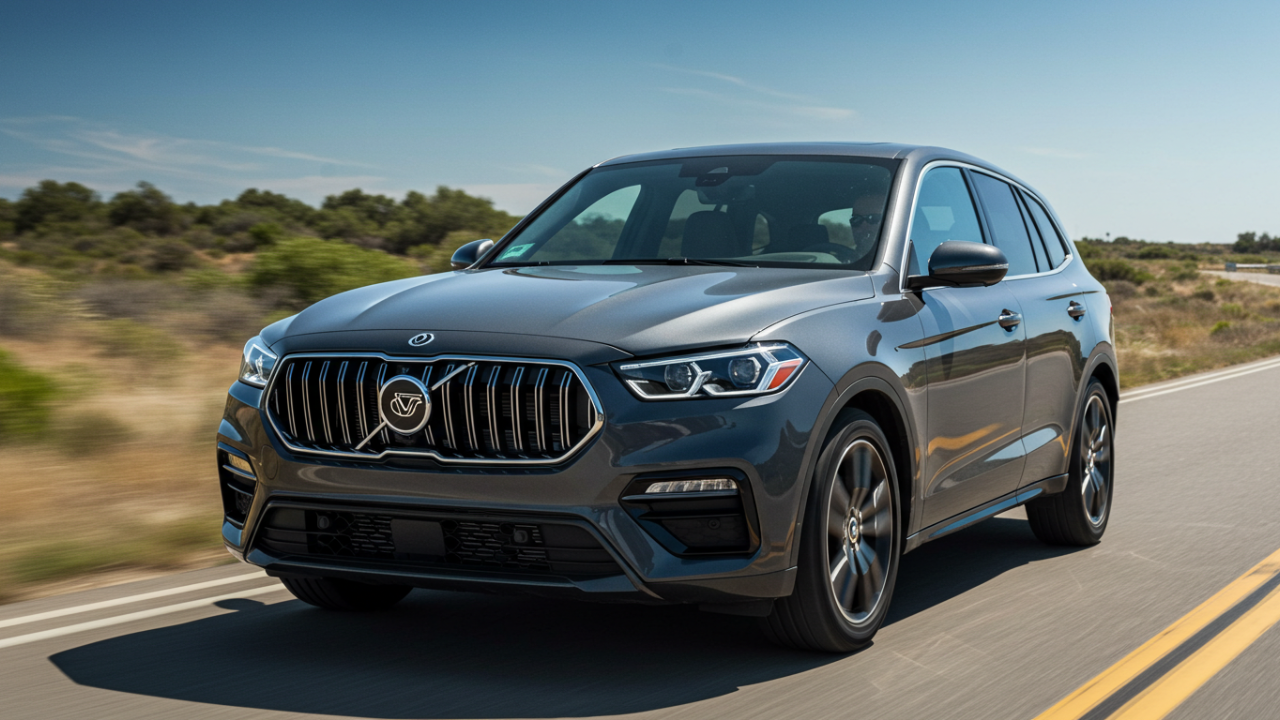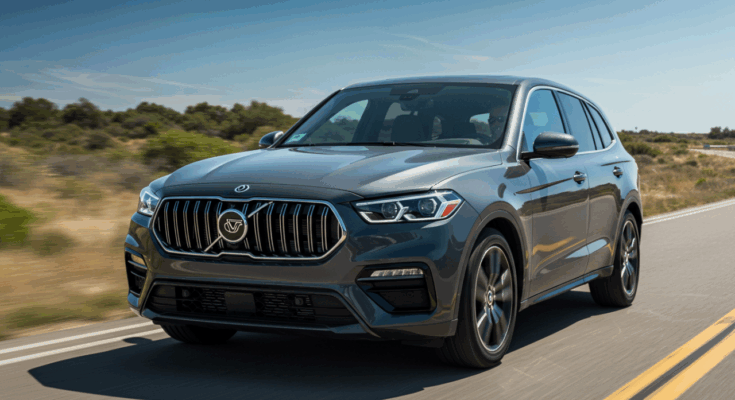The fusion of cutting-edge technology and raw performance is transforming how we experience the road. In 2025, “smart” cars aren’t just about connectivity—they’re redefining driving with AI-driven assistance, seamless interfaces, and powertrains that deliver instant torque while prioritizing efficiency and safety. These vehicles address modern drivers’ needs: effortless commutes, enhanced security, and entertainment on the go, all wrapped in sustainable packages. Whether you’re navigating urban chaos or cruising highways, the smartest cars blend brains and brawn to make every trip intuitive and exhilarating.
This review spotlights five trailblazers: the Tesla Model Y for autonomous innovation, the Mercedes-Benz E-Class for luxurious AI integration, the Volvo EX90 for safety-focused smarts, the Lucid Air for efficiency mastery, and the BMW i5 for dynamic electrification. We’ll explore their specs, standout tech, and real-world applicability, tackling questions like “How does AI improve daily drives?” and “Are these cars worth the investment?” With actionable tips on features, charging, and customization, you’ll gain insights to choose a car that elevates your routine. Let’s dive into the future of driving.
The Rise of Intelligent Mobility in 2025
2025 marks a tipping point where AI and electrification converge, making cars extensions of our digital lives. Advanced driver-assistance systems (ADAS) now use lidar, cameras, and radar for near-autonomous capabilities, reducing accidents by up to 40% according to industry estimates. Over-the-air (OTA) updates keep vehicles evolving, adding features like improved navigation or energy optimization without dealer visits. Torque from electric motors provides instant acceleration, outpacing many gas engines, while regenerative braking extends range.
Buyers often ask: “Is the tech overwhelming?” or “How secure is it?” Most systems prioritize user-friendliness with voice controls and customizable interfaces, and robust cybersecurity—like encrypted data and biometric access—guards against hacks. These cars aren’t fully self-driving yet, but they handle mundane tasks, freeing you to enjoy the journey. Expect 250-500 mile ranges, fast-charging in 20-30 minutes, and integrations with smart homes for pre-conditioning.
Autonomous Pioneer: Tesla Model Y
Powertrain and Performance
The 2025 Tesla Model Y starts at $49,990 for the Long Range trim, blending family-friendly space with electrifying performance. Its dual-motor setup delivers 425 horsepower, sprinting 0-60 mph in 4.8 seconds with a top speed of 135 mph. The 75-kWh battery offers up to 326 miles of EPA-estimated range, ideal for cross-state trips.
Cutting-Edge Tech Features
Tesla’s Autopilot is standard, with Full Self-Driving (FSD) as a $8,000 option for supervised autonomy like auto-lane changes and summon. The 15-inch touchscreen runs Google Built-In for navigation and streaming, with OTA updates adding games or efficiency tweaks. Sentry Mode uses cameras for security, and the app lets you precondition the cabin or locate your car.
Pros, Cons, and Insights
Pros: Unrivaled range; seamless AI integration; Supercharger network access. Cons: Build quality inconsistencies; no Apple CarPlay. It’s a power player for tech enthusiasts, but fuel savers appreciate 130+ MPGe.
Actionable Advice
For commuters, enable FSD for hands-free highway driving—test in low-traffic first. Home charging via Tesla Wall Connector ($475) adds 44 miles/hour; budget $300/year for maintenance, mostly OTA. Customize with $2,000 third-row seats for families. Resale holds 60% after three years due to updates.
Luxurious AI Haven: Mercedes-Benz E-Class
Powertrain and Performance
Starting at $57,991, the 2025 Mercedes-Benz E 350 4MATIC uses a 2.0-liter turbo inline-four with mild-hybrid assist for 255 horsepower and 295 lb-ft torque. It hits 60 mph in 6.1 seconds, blending efficiency (24/33 mpg) with all-wheel-drive grip.
Cutting-Edge Tech Features
The Superscreen spans 56 inches with three displays, including AR heads-up for navigation overlays. MBUX AI learns preferences for climate and music, while Active Driving Assist handles lane changes and traffic jams. Zoom integration and a passenger screen add productivity.
Pros, Cons, and Insights
Pros: Opulent cabin; advanced ADAS; quiet ride. Cons: Complex menus; higher price. It’s torque-focused luxury with smart assists for fatigue-free drives.
Actionable Advice
Opt for the $3,000 Driver Assistance Package for evasive steering. Maintenance averages $1,000/year; use Mercedes Me app for remote diagnostics. For long hauls, AR HUD reduces glances—pair with $2,500 massage seats. Resale at 55% after three years.
Safety Sentinel: Volvo EX90
Powertrain and Performance
The 2025 Volvo EX90 starts at $81,290, with dual motors yielding 402 horsepower in base form, reaching 60 mph in 5.7 seconds. Its 111-kWh battery provides 310 miles of range, towing up to 4,850 pounds.
Cutting-Edge Tech Features
Lidar and radar enable Pilot Assist for semi-autonomous driving, with occupant sensors preventing hot-car tragedies. The 14.5-inch Google touchscreen offers voice controls, while OTA updates enhance safety algorithms. Bowers & Wilkins audio immerses with 25 speakers.
Pros, Cons, and Insights
Pros: Unmatched safety; spacious seven-seater; eco-materials. Cons: Slower charging; firm ride. A torque beast with brains for family protection.
Actionable Advice
Choose Performance trim ($75,900) for 533 hp if towing. Level 2 charging ($600 install) tops up in 6-8 hours; annual upkeep $500. Use radar for child alerts—essential for parents. Strong resale at 65%.
Efficiency Exemplar: Lucid Air
Powertrain and Performance
Priced from $69,900, the 2025 Lucid Air Pure offers 430 horsepower, 0-60 in 4.5 seconds, and 420 miles range from an 84-kWh battery. Grand Touring hits 512 miles.

Cutting-Edge Tech Features
DreamDrive ADAS includes AI for adaptive cruise and blind-spot views. Surreal Sound with 21 speakers and OTA updates refine efficiency. The 34-inch curved display integrates navigation and climate.
Pros, Cons, and Insights
Pros: Class-leading range; luxurious interior; 5 miles/kWh efficiency. Cons: Limited dealers; firm suspension. Balances torque with smart energy management.
Actionable Advice
Pure for commuters—claim $7,500 credit. Home charger adds 80 miles/hour; $400/year maintenance. Use DreamDrive for highways—monitor updates for new features. Resale 60%.
Dynamic Driver: BMW i5
Powertrain and Performance
The 2025 BMW i5 eDrive40 starts at $67,100 with 335 horsepower, 0-60 in 5.7 seconds, and up to 295 miles range. M60 offers 601 hp.
Cutting-Edge Tech Features
iDrive 8.5 with curved 14.9-inch display and AR HUD overlays directions. Active Driving Assistant handles steering and braking; OTA enhances performance. Bowers & Wilkins audio optional.
Pros, Cons, and Insights
Pros: Athletic handling; premium cabin; quick charging. Cons: Smaller trunk; complex interface. Torque meets tech for engaging drives.
Actionable Advice
xDrive40 ($70,100) for all-weather. Wallbox charger ($500) adds 31 miles/hour; $800/year upkeep. Customize with $2,500 Premium Package. Resale 55%.
Head-to-Head: Specs Snapshot
| Model | Starting Price | Horsepower | Range (Miles) | 0-60 mph | Key Tech Highlight |
|---|---|---|---|---|---|
| Tesla Model Y | $49,990 | 425 | 326 | 4.8 sec | FSD Autonomy |
| Mercedes E-Class | $57,991 | 255 | N/A (Hybrid) | 6.1 sec | Superscreen AI |
| Volvo EX90 | $81,290 | 402 | 310 | 5.7 sec | Lidar Safety |
| Lucid Air | $69,900 | 430 | 420 | 4.5 sec | DreamDrive ADAS |
| BMW i5 | $67,100 | 335 | 295 | 5.7 sec | AR HUD iDrive |
Tesla leads range/value; Mercedes luxury; Volvo safety; Lucid efficiency; BMW dynamics. For torque lovers, higher trims add punch.
Navigating Smart Car Ownership
Tech Setup: Link apps for remote monitoring—budget $100/year for premium connectivity. Charging Tips: Level 2 home units ($500-1,000) save time; use apps like PlugShare for public spots. Maintenance: EVs cost $400-800/year; check batteries every 5 years ($200). Safety First: Calibrate ADAS post-tire changes; enable driver monitoring. Buying Advice: Test autonomy features; factor $7,500 EV credits. Insurance $1,500-2,500/year—shop bundles.
These cars prove tech enhances torque, making drives safer and smarter.
FAQ
What’s the best smart car for autonomy in 2025?
Tesla Model Y with FSD—handles highways but requires supervision.
How does AI improve driving?
It learns habits for personalized climate/music and predicts hazards via ADAS.
Are smart cars hack-proof?
Mostly, with encryption; enable two-factor app access.
What’s the biggest cost beyond purchase?
Charging infrastructure ($500-2,000); electricity $300-500/year.
Can these cars self-park?
Yes, via apps or sensors—practice in open lots first.



